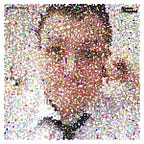La Haine (1995)
[caption id=”attachment_1375" align=”alignright” width=”300"]
Modern technology confused the French, even in 1995.[/caption]
Twitter Plot Summary: A riot ensues on an estate in Paris after a local youth is beaten up by police.
Genre: Drama
Director: Matthieu Kassovitz
Key Cast: Vincent Cassel, Hubert Kounde, Souad Taghmaoui
Five Point Summary:
1. Spoofing Taxi Driver. In French. Nice.
2. There’s a cow on the streets!
3. Breakdancing! MNAGH!
4. Skinheads. Lovely bunch of lads. Not.
5. Oh, right. So that’s how we’re finishing this one then…
La Haine is not your typical view of France — the three main characters are all from ethnic minorities and we follow them as they don’t do anything of consequence over the course of 24 hours. There’s tensions aplenty as their suburban ghetto is the subject to heavy police enforcement following riots that occurred the day before. One of their friends was beaten up by a police officer and now lies critical in hospital, which does nothing to soothe tensions between the put-upon residents and the seemingly racist police.
Shot in black and white and emphasising that this isn’t the tourist-friendly side of France we’re used to seeing, there is an air of impotent rage on display, a feeling that things aren’t right yet those without power can do nothing other than talk about it. The central trio of Vinz, Hubert and Said are an intriguing bunch, all with personalities that are completely at odds with their outward persona. Hubert is a boxer but is actually the voice of reason for the most part, difficult to anger and often the first to diffuse a potentially violent situation. Vinz meanwhile is outwardly a gangster-type but ultimately is all bluster. Said is unfortunately the less well defined of the three, taking up the middle ground between the other two. They have little to define their existence other than the violence and hatred that surrounds them. Never getting into any real trouble, on the whole at least, they are still followed with suspicion by the police and other unpleasant groups such as French skinheads — yep, they have them on the continent too.
[caption id=”attachment_1374" align=”alignleft” width=”300"]
“Vous me parler?!”[/caption]
It ends almost inevitably, and it’s hard to see where else it could have gone after all that precedes it. Violence begets violence, hatred breeds hatred, and that becomes all too apparent. The opening of the film states that, when falling, it’s not the fall itself that is painful but the landing. It seems an obvious point to make, but whilst in freefall, either literally or figuratively, you are in control until the ground comes rushing up to meet you. From a purely metaphorical perspective, this notion plays out to dramatic effect, both in terms of Vinz, Hubert and Said and their perspective on events, as well as providing a commentary on French society as a whole.
The remaining point that is evident is that often both sides of the argument are as bad as the other. Whilst the ethnic minority groups threaten violence against the police, they are just as bad themselves, their intolerance to the non-white community in their own country is unpleasant to say the least. Whatever the truth may be in France with regards to the general consensus about other racial or political groups, the point is clear — if you respond in kind then you are just as bad as they are. Nothing good will come from this attitude to life, and La Haine makes its point beautifully without beating you up with it. Well, not too much.
Favourite scene: The old man in the bathroom provides a confusing but entertaining monologue.
Quote: “It’s not the fall that matters, it’s the landing.”
Score: 4.5/5
